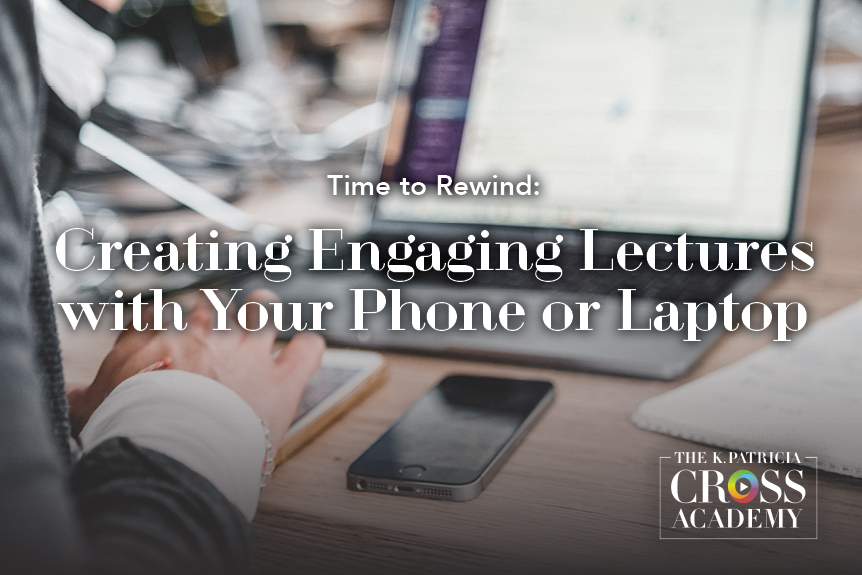CrossCurrents Library
CrossCurrents is an electronic publication that offers articles on a wide range of topics related to teaching and learning in higher education. Through engaging content that encourages exploration and reflection on best practices, innovative pedagogies, and emerging trends in higher education, we try to help college teachers successfully navigate the challenges they face in today’s complex classroom.
Featured Collections
Topics

The COVID-19 pandemic has led to many if not most college faculty teaching in virtual classrooms. While many of us are turning to synchronous lectures with video conferencing tools such as Zoom or Blackboard Collaborate, many of us are also choosing to create asynchronous video lectures that students can watch anytime, anywhere. There are many valid reasons for making this

“When you learn, teach. When you get, give.” ~Maya Angelou Many of us teaching in higher education don’t think about lesson planning. But creating a lesson plan can be important to a successful class and for student learning. Creating a lesson plan prompts instructors to identify learning objectives, organize course content, plan learning activities, and prepare learning materials. The process

“I like a teacher who gives you something to take home and think about besides homework.” ~Lily Tomlin When you are choosing what students will do during the semester, have you ever wondered whether you are assigning too much or too little work? Finding an appropriate workload balance for students can be a real challenge. And surprisingly, little research about

“Design is the intermediary between information and understanding.” ~Hans Hoffman When we design a course, we typically do so before actually meeting the students who will enroll in it. We have to determine how to best teach the particular content and skills to the students we will meet. Even if we design the best content and pedagogies possible, if we

“In learning you will teach, and in teaching you will learn.” ~Phil Collins Before each semester, we sit down to write a syllabus for the coming course, most often without having met the people who will fill our rosters. Most of us have to (or want to) include learning objectives in this syllabus, a task that can be simultaneously inspiring

“It’s what you learn after you know it all that counts.” ―John Wooden Many “edumyths” exist, and unfortunately these can be harmful to students and even to teachers. What are we talking about? Edumyths are common beliefs about education. These myths often express claims about what practices benefit learning or learners. They typically have no basis of fact, however. Either

“Learning is not attained by chance, it must be sought for with ardor and attended to with diligence.” ~ Abigal Adams One of the most often cited works on learning, and one we refer to often, is John Bransford, Ann Brown, and Rodney Cocking’s 2000 work appropriately titled How People Learn: Brain, Mind, Experience, and School. The report, which was

“Learning never exhausts the mind.” –Leonardo da Vinci The question of how people learn has intrigued generations of scholars. It is perhaps no surprise then that many different theories about individual learning exist. Some of these theories stem from a behaviorist perspective, a view that suggests that learning can best be explained in terms of conditioning. Some of the theories